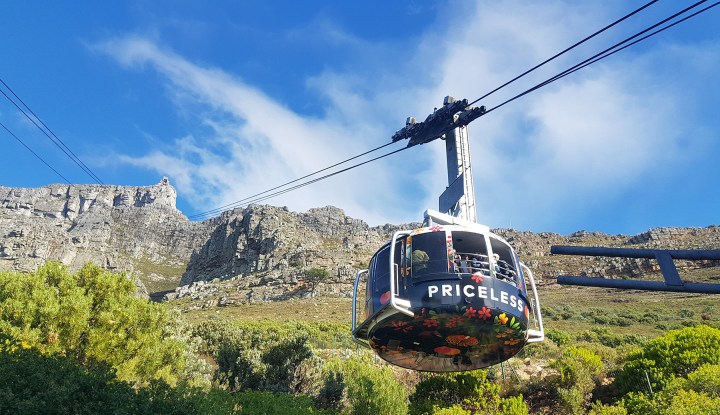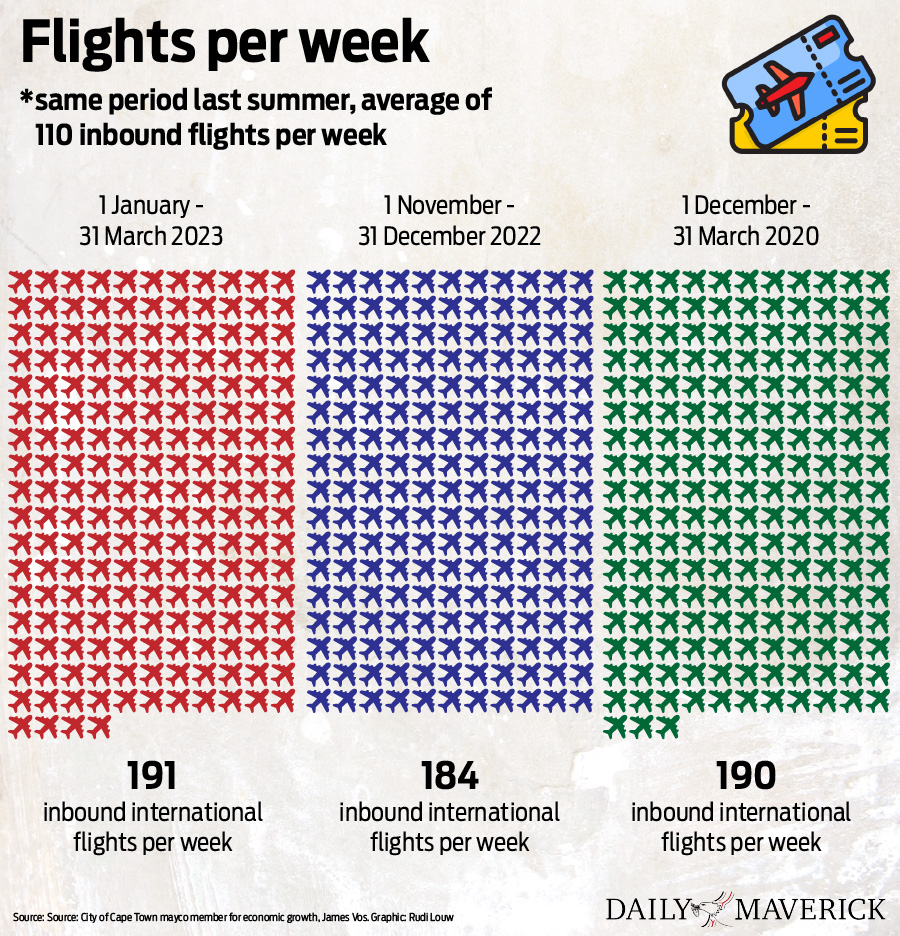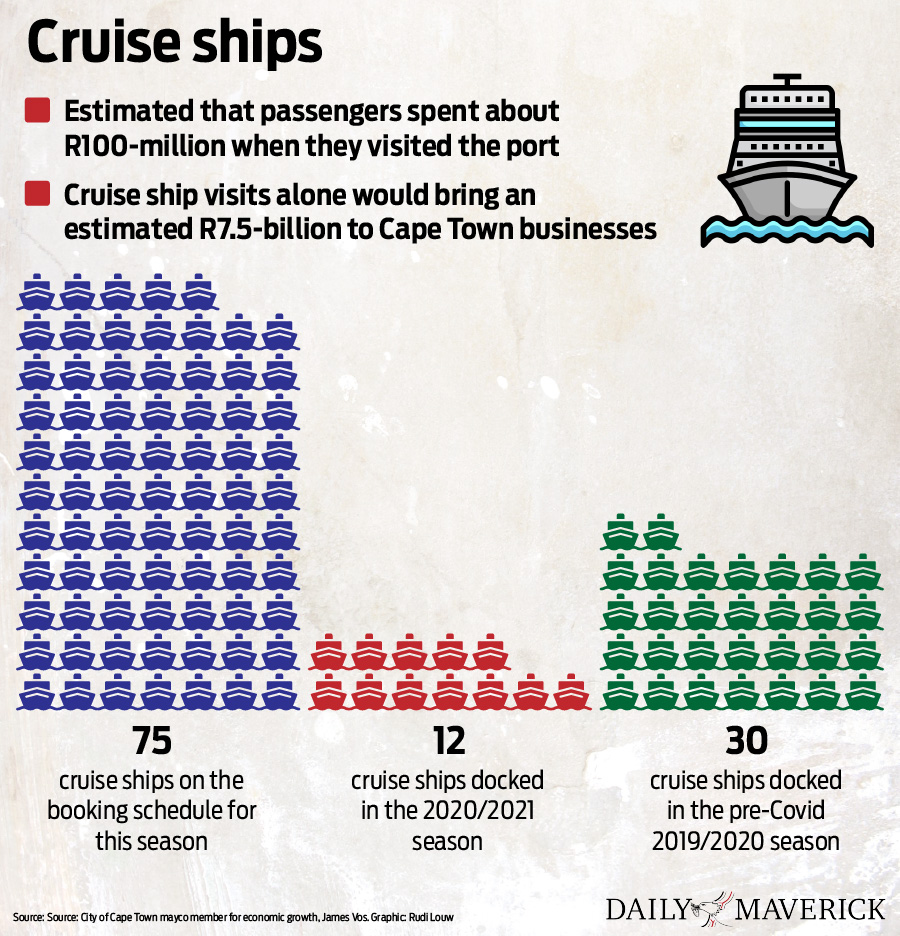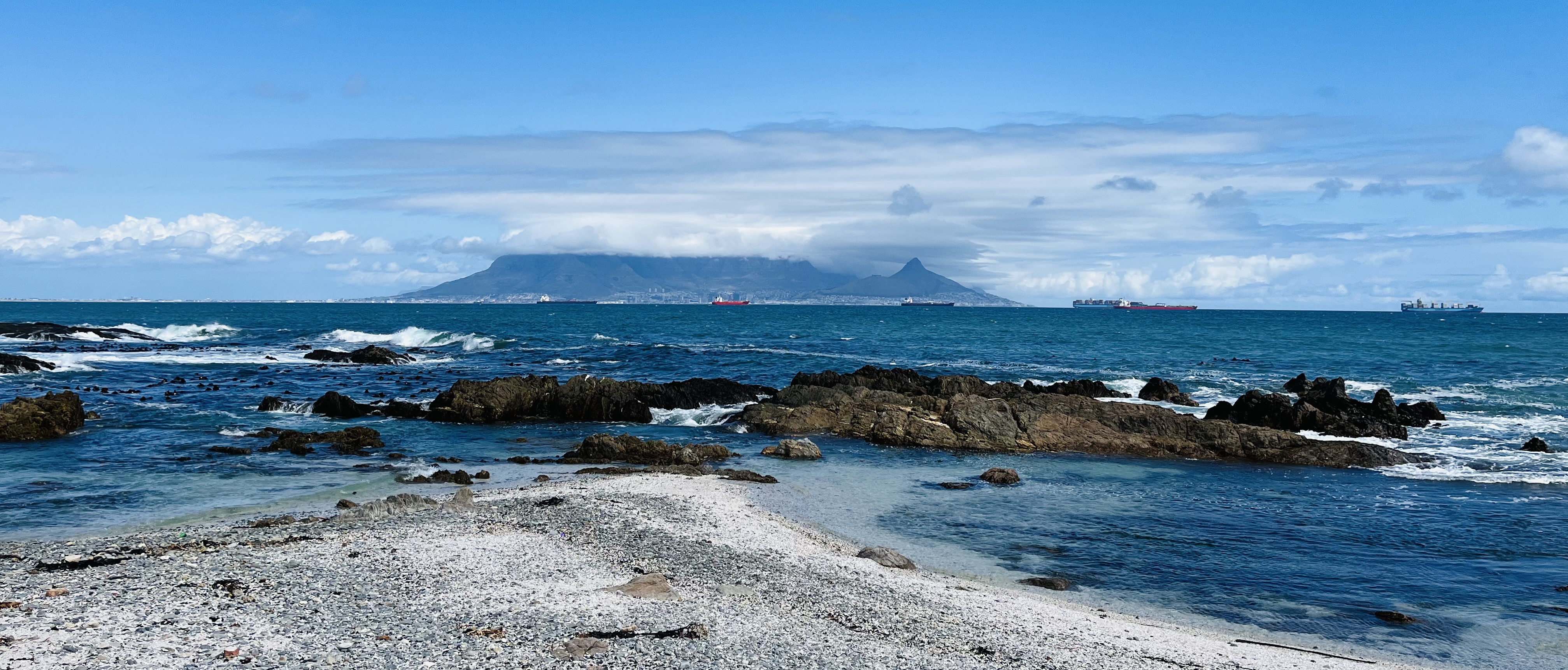TRAVEL LOG
Tourism is back on track, along with the cloud of carbon emissions

Cape Town tills are expected to ring as summer visitor numbers are back to pre-Covid levels, but as a long-haul destination, the economic boost also contributes to the climate crisis.
The tourists are back. Covid lockdowns decimated the tourism and hospitality sector, with job losses across the board in 2020, but according to City and province officials, Cape Town and the Western Cape are expecting a bumper summer season, with visitor numbers back up to pre-Covid levels.
Addressing the media on 8 December, City mayco member for economic growth, James Vos, said “targeted campaigns” had kept Cape Town “on traveller’s radars”. With Covid restrictions now almost non-existent, this had paid off. Vos said the number of passengers on domestic and international flights to Cape Town was now at “100% of 2019 figures”.
Among the campaigns was to secure more flights from key markets, which has “resulted in new air routes from the US, Belgium and Mozambique, and new airlines – United Airlines, Air Belgium, Delta, and Virgin Atlantic (which returns to Cape Town after seven years).”
He said during November and December there were 184 international flights per week, which will increase to 191 international flights per week from January to the end of March. This is on par with the 190 inbound international flights per week from 1 December 2019 to 31 March 2020. For the same period last summer, there were an average of 110 inbound flights per week.
In addition, he said there were 75 cruise ships on the booking schedule for this season, and it was estimated passengers spent about R100-million when they visited the port. This meant cruise ship visits alone would bring an estimated R7.5-billion to Cape Town businesses.
This was way up from the 30 cruise ships that docked in the pre-Covid 2019/2020 season, and the 12 that docked last summer while Covid uncertainty remained.
Watch your steps – consider your carbon footprint and travel in eco-friendly style
When it came to domestic tourism, Cape Town Tourism CEO Enver Duminy said their latest Domestic Travel Intent Report indicated two-thirds of South Africans would travel during this festive season, with 92% of them intending to travel locally. The most popular domestic holiday destination was the Western Cape.
Duminy said by November domestic flights were at 74% of pre-Covid levels, and expected to increase as the festive season gained momentum.
In a separate media release on 13 December Western Cape Minister of Finance and Economic Opportunities, Mireille Wenger, said the 191 flights per week translated to 1.56 million airline seats available.
“I have been keeping a very close eye on our tourism recovery data and am pleased to see that the upward trends are continuing at both the Cape Town International Airport and George Airport, as well as attractions across the province,” said Wenger.
She said the largest number of international visitors came from the UK, followed by Germany, the US, the Netherlands, and France.
Local tour companies have confirmed they’re looking at a good season.
At well-established African Eagle Day Tours, reservations manager Marlon Walters said they were “extremely busy”, and all the accommodation establishments they deal with were fully booked until February.
Walters said African Eagle had up to 30 Mercedes Sprinter vans in which they transport up to 13 tourists on their various day tours, but have had to rent an additional “five or six” passenger vans to cope with booking demand.
The company has also expanded its staff for the season, and is busy training an extra ten guides.
He said they were not yet quite as busy as they were before Covid, but were “moving in that direction” as the season came into full swing and were already exceeding their limit of 99 airport transfers per day.
Visit Daily Maverick’s home page for more news, analysis and investigations
Che Watson, owner of Wanderer Tours and Travel which was established in 2018, said they could not compare this season to pre-Covid as they were just starting up then, but it has “been a decent year all round since March”, and “most hotels are fully booked”.
Watson said demand was greater than supply for his company at the moment, and they were scaling up in order to deal with all the enquiries they were receiving.
Sunset cruise and helicopter flip operators Daily Maverick spoke to informally at the V&A Waterfront on 19 December, said business had been rather quiet, but was beginning to pick up. There were decent queues for the various sunset cruises on what was a Monday.
Great for the economy, less so for the climate
Vos said according to Statistics South Africa, the estimated gross value add (GVA) of tourism in Cape Town in 2019 (pre-Covid) was R18.6-billion, representing 5.3% of Cape Town’s total GVA.
But this economic boost comes with an environmental cost. Cape Town is a long-haul destination, and each return flight from London to Cape Town emits about 880 tons of CO2 (2.2t CO2 per passenger in economy). Carbon (CO2) is a greenhouse gas released by burning fossil fuels, which is contributing to global warming causing the current climate crisis.
The climate crisis was also threatening tourism businesses dependent on nature-based attractions as the resultant floods and droughts “wreak havoc” on local fauna, flora, and landscape.
At a conservative estimate, an expected 3,219 flights between December and March amounted to 2.8 million tons of CO2 being released into the atmosphere just for international flights.
That doesn’t take into account fuel burned ferrying visitors or from hired cars, nor the activities they engage in and the carbon footprint of the goods purchased, nor the waste generated.
Researcher at the African Centre for Cities, Anton Cartwright, said while tourism can be environmentally damaging, it doesn’t have to be. It was also easier to “decarbonise” tourism than mining or steel manufacturing, for instance.
Cartwright said tourism was also labour intensive, which meant it provided a lot of jobs, and rather than trying to minimise tourism, it would be better to find ways to mitigate its climate heating impacts.
He said there were numerous initiatives, from “the miniscule”, such as hotels asking guests not to leave their linen and towels for daily laundry to “the significant”, such as airlines researching more climate-friendly ways to fly.
However, he said everyone, from individuals to businesses to government, could be doing more, although the City of Cape Town was “quite progressive in the space”.
One thing that could help the tourism industry’s mitigation efforts was the carbon tax which has been introduced in South Africa, where heavy polluters such as the mining and chemicals industries pay a tax calculated on the amount of carbon they release above a certain threshold. Although carbon tax has been criticised as a way to allow polluters to continue to pollute, the tax could be used to invest in the green economy (renewable energy industry, for example), for natural spaces such as Table Mountain National Park, or to fund regenerative agriculture on wine farms.
Beyond the carbon emissions from long-haul flights, Cartwright said the conspicuous consumption and waste that accompanied tourism was an intractable problem. However, this was not caused by tourism itself, but rather by upstream manufacturing and logistics industries. As for carbon released by tourists travelling overland, if South Africa, and Cape Town in particular had properly functioning public transport, it could significantly reduce carbon emissions. Metrorail’s southern line to Simon’s Town, for instance, could be full of tourists if it was safe, efficient, and reliable.
Coordinator at the South Africa Climate Action Network, Thandolwethu Lukuko, said the major contributor to carbon emissions in the tourism industry was the use of fuel for various modes of travel, and much of the debate over tourism’s economic benefits versus its global warming impact rested on the availability of alternative sources of fuel.
The development of the electric vehicle (EV) sector would provide some solutions, said Lukuko.
The climate crisis was also threatening tourism businesses dependent on nature-based attractions as the resultant floods and droughts “wreak havoc” on local fauna, flora, and landscape.
He said tourism and hospitality companies should track their guests’ carbon footprint in order to see where carbon emissions could be reduced. As we were not in a position to choose between tourism’s economic benefits and the climate crisis, the question was how to manage the two.
He said it’s “unquestionable” the City of Cape Town was the most advanced city in South Africa in terms of climate change response and has been implementing its commitment to carbon neutrality by 2050. However, he said the document provided very few insights on interventions in the tourism sector.
Whatever we do in terms of mitigation, said Cartwright, Cape Town could not get away from the fact it was a long-haul destination for international travellers. DM
























Comments - Please login in order to comment.